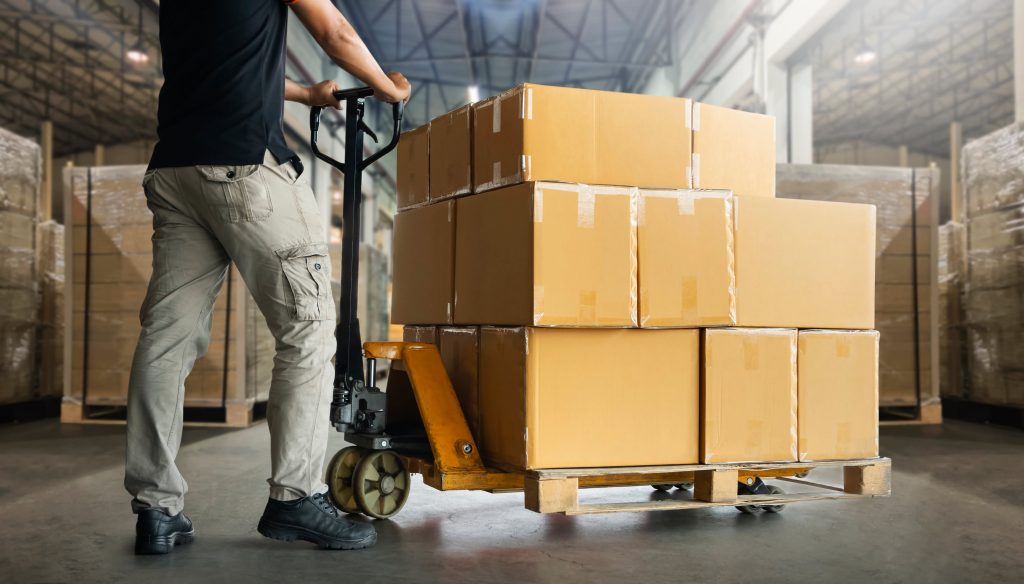Everyone who’s ever purchased something online, whether a business or a consumer, knows this experience: you buy the item or items, and by the next day or a few days following, the tracking update indicates that your package is in transit. But what does “in transit” mean? In an age where customers expect rapid, frictionless service, your company needs a third-party logistics (3PL) provider that can really deliver.
Here’s what you need to know about orders “in transit” and how it affects the customer experience.
What Does “In Transit” Mean?
What does “in transit” mean, exactly? When a package is in transit, it means that it has left the seller’s warehouse and is en route to the final destination. A package in transit will be under the control of the courier or logistics company in charge of transportation.
Admittedly, this is a broad definition. A package in transit may be located on a plane or delivery vehicle. However, it’s also possible for the package to be in one of the 3PL provider’s warehouses or distribution centers.

“In Transit” vs. “Out for Delivery”
Some customers may assume that “in transit” and “out for delivery” are interchangeable. They are not. The two labels refer to two different points in the shipping process. What does “in transit” mean compared to “out for delivery?”
An item in transit is simply being transported from the seller to a local distribution center. Once it reaches this destination, the package is loaded onto a delivery vehicle and delivered to the customer’s home or business. That’s why an item will only be out for delivery on the day that the package is scheduled to arrive.
How Long Will a Package Remain in Transit?

What does “in transit” mean for your shipping time? Most packages will be delivered within one to five business days, though the exact shipping time can vary depending on such factors as:
- Shipping distance
- Shipping carrier(s)
- Shipping method
- Shipping delays
The best 3PL providers can provide an estimate to help your customers understand how long they have to wait to receive their items. An estimated delivery date will also give customers a better idea of when their items will arrive.
Reasons Why Shipments Get Stuck in Transit
What does “in transit” mean when a package becomes stuck in that status? Shipping delays can be caused by the following issues, all of which can be overcome by selecting the right 3PL provider.
Customs Delays
Customs and border control issues often cause shipping delays. International shipments must go through a customs clearance process to ensure that all packages adhere to import/export regulations, some of which vary by country.
The right 3PL provider can help you avoid these delays. By providing the required documentation, 3PL providers can ensure that shipments clear customs and meet all international shipping requirements.
Delivery Exception Delays
Delivery exceptions can also create shipping delays. What are delivery exceptions? These are circumstances in which a package cannot be delivered — or delivered on time — due to unforeseen events. The most common exception delays include:
- National or federal holidays
- Damaged, missing, or incomplete labels
- Weather delays
- Adverse traffic conditions
Retailers can avoid some of these delays by reaching out to customers for complete shipping information. Otherwise, 3PL providers may be able to forecast delivery dates based on upcoming holidays or weather conditions.
Package Dimension Delays
In some cases, shipping delays may be caused by large package dimensions. This can cause packages to remain in transit until the right vehicle or delivery method can be established.
A common workaround is to split shipments into multiple packages. The right 3PL provider can provide advanced tracking support to monitor the progress of each item in the shipment. Customers may receive their items on separate days, but splitting the shipment will ensure that at least some items will arrive on time.

Why Your 3PL Provider Matters
According to 2023 e-commerce data, speed is a top priority for U.S. shoppers. If shoppers could change just one thing about their online shopping experience, it would be faster shipping—even if they have to pay for it.
The right 3PL provider can help your business offer speed and dependability. When customers ask, “What does ‘in transit’ mean?” you can back up your answer with reliable data from your shipping provider.
R2 Logistics can help you provide solutions for a variety of business sectors. Contact our team today to learn more about our shipping solutions.
